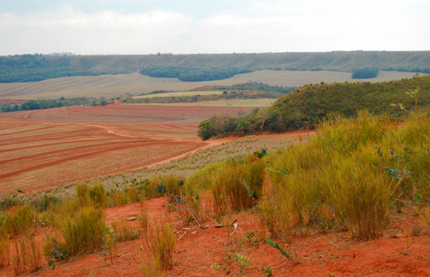Soil Science Society of America
5585 Guilford Road • Madison, WI 53711-5801 • 608-273-8080 • Fax 608-273-2021
www.soils.org
Twitter | Facebook
NEWS RELEASE
Contact: Hanna Jeske, Associate Director of Marketing and Brand Strategy, 608-268-3972, hjeske@sciencesocieties.org
The master variable of soil science: pH
May 1, 2016 – Soils are a complex mixture of organic and inorganic, living and non-living components. And with this complex mix comes some very complex – yet important – chemistry. If there is one principle that can frame and help simplify soil chemistry, it is pH. The Soil Science Society of America (SSSA) May 1 Soils Matter blog post explains what earns pH the ‘master variable’ in soil science: change pH, and you likely alter or influence a slew of processes.
 “The reason for this is that pH is intimately tied to chemical, biochemical, and biological processes, and their interactions,” says Andrew Margenot, UC-Davis.
“The reason for this is that pH is intimately tied to chemical, biochemical, and biological processes, and their interactions,” says Andrew Margenot, UC-Davis.
“Testing your garden soil for pH is a very important step in creating and maintaining the best growing environment,” says Margenot. “We recommend testing pH when you create the garden and every few years thereafter (check with your local extension office for the best recommendations for your area). Remember that different plants may need different pH values, so be sure to consult optimal pH values for a given plant when you are working in your garden and using soil amendments and/or fertilizers.”
To read the entire blog post, visit http://soilsmatter.wordpress.com.
Follow SSSA on Facebook at https://www.facebook.com/SSSA.soils, Twitter at SSSA_Soils. SSSA has soils information on www.soils.org/discover-soils, for teachers at www.soils4teachers.org, and for students through 12th grade, www.soils4kids.org.